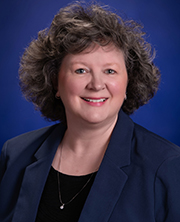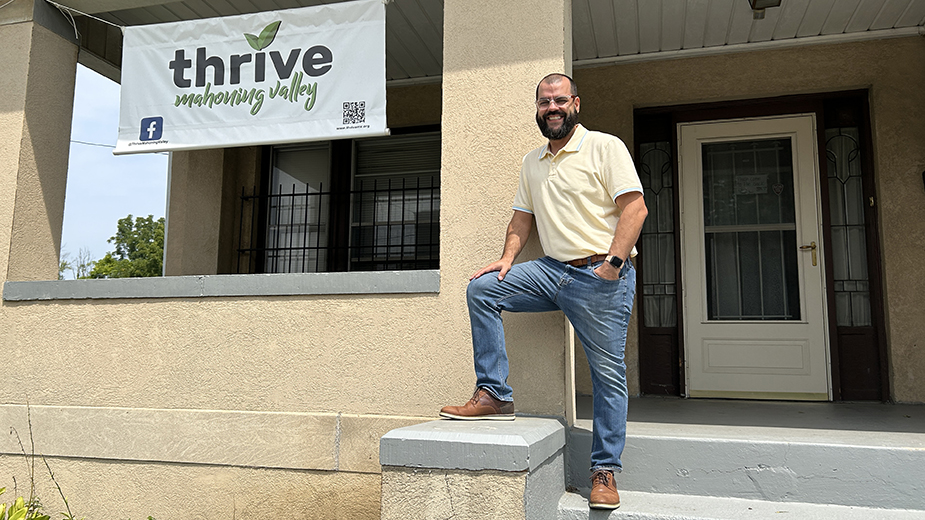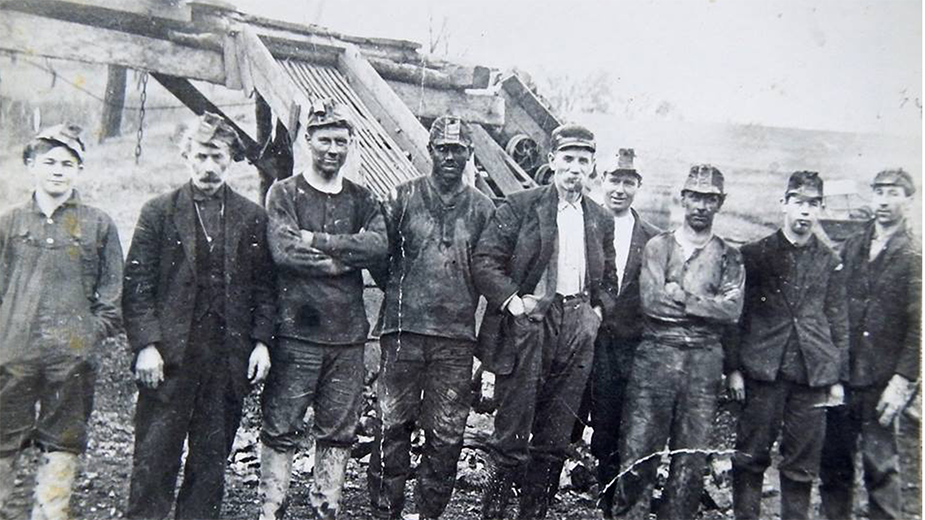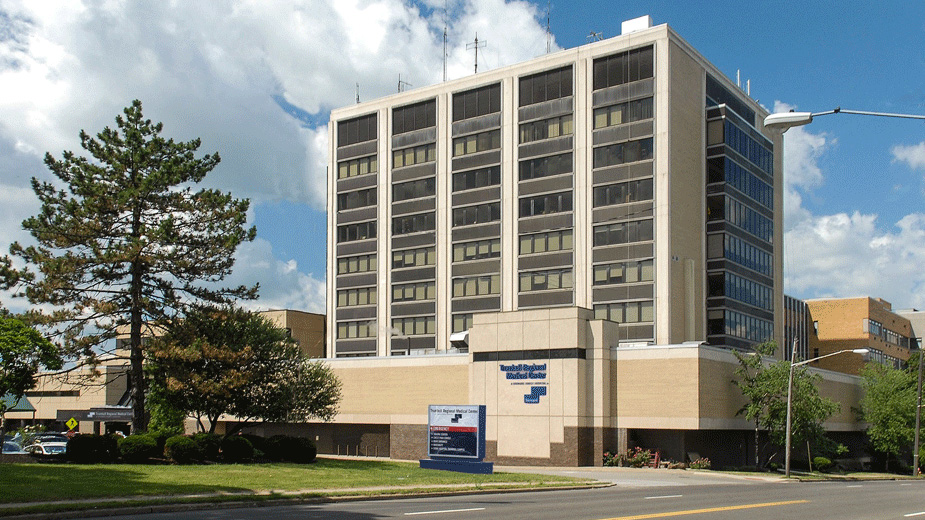Making Youngstown Welcoming for Everyone
YOUNGSTOWN, Ohio – The city and a Mahoning Valley nonprofit organization want to lay out a welcome mat for people moving into the community – legal immigrants and refugees and all newcomers.
City Council’s Community Planning and Economic Development Committee in mid-August approved sponsoring legislation to join Welcoming America. That’s a preliminary step to pursuing a Welcoming City designation.
“The first step was the city joining Welcoming America, which is the national organization, which we’re also part of,” says Christopher Colón, executive director of Thrive Mahoning Valley, a nonprofit organization that works to make the Valley a welcoming community.
Certified Welcoming is a designation that says a city or community has policies in place signifying it’s open and willing to accept newcomers into the community, he says. “And for purposes here, specifically, it’s immigrants and refugees.”
Even though Thrive Mahoning Valley is a Welcoming America member, a governmental entity must take the lead to earn a Welcoming designation through Welcoming America.

Welcoming America “is a nonprofit leading a movement of inclusive communities becoming more prosperous by ensuring everyone belongs, including immigrants,” according to the organization’s website.
Thrive approached Stephanie Gilchrist, Youngstown economic development director, earlier this year and arranged a meeting to talk about welcoming status.
Thrive met with Gilchrist as well as Nikki Posterli, the mayor’s chief of staff, and the city agreed to sponsor the move to join Welcoming America.
Gilchrist says the city is developing a strategic plan including economic development and sees an increase in the number of immigrants and non-native English speaking citizens coming into the community.
“I think a lot of folks have the misconception of what that looks like for us and who that includes,” she says. “And so I believe this is a way to bring unity to the community and to become more inclusive and to ensure that everyone has a place in the city of Youngstown, through workforce, through economic growth, through home ownership.”
The department will prepare legislation and present it to city council for approval.
Benefits
For First Ward Councilman Julius Oliver, chairman of the Community Planning and Economic Development Committee, becoming a Welcoming City is practical.
“Your alternative is people continuing to leave the city so it gets to the point where there are no longer enough people here for us to actually be a charter city anymore,” he says. “If we make Youngstown a welcoming city to whoever would like to live in Youngstown, for me, it doesn’t necessarily have anything to do with the broader perspective of who people assume will be moving here.”
It has to do with people who have left the city and are thinking about coming back, Oliver says. He wants the city to welcome them.
“That’s the perspective I’m coming from,” he says.
Oliver hears from people who have relocated and want to come back but don’t for a variety of reasons. The councilman points to the six houses being built by the Youngstown Neighborhood Development Corp. on Bernard Street.
“A lot of people move to the suburbs because there isn’t adequate housing stock in Youngstown,” he says. “If we can welcome some of those people back into the city, that’s what I want to do. If [Thrive] can help us do that, I’m all for it.”
Some detractors are trying to paint becoming a Welcoming City in a light of Youngstown becoming a sanctuary city for migrants, Oliver says. That’s not the aim.
“People have to put some of their fears aside and what they’re assuming and understand we need to grow our population back in the city of Youngstown – no different than what the [Youngstown/Warren] Regional Chamber is doing,” Oliver says.
The chamber and Eastgate Regional Council of Governments have been focusing on repopulation and what they term the three R’s: retain young people, return people who have left and receive newcomers.
Brenda J. Linert, chamber director of government affairs and community impact, says while some may confuse welcoming city with sanctuary city, they’re not the same.
She, Gilchrist and Colón agree that no one is seeking for Youngstown to become a sanctuary city.
“Generally [a welcoming designation] makes us more welcoming to refugees or legal immigrants,” Linert says. “Essentially, our goal is always to try to expand the workforce, expand the population.”
What It Means
A welcoming designation would show that the city is a welcoming place for all people, where they’re encouraged to be civically engaged, participate in the workforce and open new businesses, she says.

The Mahoning Valley has always been a place that’s rich in different ethnicities, Linert says.
Gilchrist echoes that idea. The ancestors of many Valley residents were immigrants.
“Generations before us weren’t born in America,” she says. “And so for us, look what we’ve done. Look at what we have done as a culture, as a city. I think that’s how we have to look at it – that we’re giving them the opportunity that was given to our great grandparents, or our grandparents, who may have migrated into America for a better life.”
Linert also references an American Immigration Council report that shows transportation and warehousing is the industry with the highest share of immigrant workers in Ohio. Those are industries with a critical need for workers in the Mahoning Valley too.
With new companies moving in and expected to move into the region, the need for manufacturing workers is also rising.
The first step is attracting documented, legal immigrants and refugees to the area, Linert says. If they aren’t legal, they won’t help employers because those employers won’t be able to hire them.
“We anticipate a lot of job openings in the coming decade,” Linert says.
Immigrants’ Contributions
A 2022 report from the American Immigration Council says that about 4.9% of Ohio’s residents are foreign born and immigrants comprise 6.1% of the state’s labor force. Immigrants make up 8% of Ohio’s entrepreneurs, nearly 12% of science, technology, engineering and mathematics workers and 5% of nurses, according to the report.
Gilchrist says other cities and communities in Ohio, including Akron, Dayton, Columbus, Toledo and Summit, Lucas and Cuyahoga counties also are a part of the Welcoming America network. “So it just makes sense for us to continue the work and align with the rest of the cities in the state,” she says.
The Process
Leslie Nguyen-Okwu, director of strategic communications at Welcoming America, says in an email that Youngstown is in the early stages of seeking a one-star designation that includes collecting evidence for a self-assessment. Designations go up to five stars with additional requirements for each level.
Steps include self assessment, analysis by the certification team, an audit, a report, additional evidence if required and then certification and an announcement.
“From start to finish, the certification process typically takes six months to one year, but may take longer if additional evidence is required to demonstrate compliance,” Nguyen-Okwu says in the email.
To earn the designation, the applicant must comply with Welcoming America’s Welcoming Standard. That standard includes benchmarks in seven areas: civic engagement, connected communities, education, economic development, equitable access,community leadership and safe communities.
More Support
The Welcoming designation would help provide guidelines to aid people who aren’t U.S. citizens to secure citizenship, Gilchrist says.
Some people moving into the area are already citizens. They’re just migrating from other parts of the country, she says.
“For us, it’s just being that support for them, giving them a place and with the collaboration with Thrive – they’re already doing the work – now we have their back in doing the work and supporting them,” Gilchrist says.
She points to recent efforts to increase the workforce in the area.
“This will allow us to help diversify that for our businesses and encourage [people] to open businesses. It’s making sure the playing field is even and that everyone feels included who contributes to our economy,” the city economic development director says.
Colón and another Thrive officer are working through a program to become certified through the U.S. Justice Department to represent people applying for citizenship, visas or green cards, he says.
“It’s a long process, but when we’re both accredited, then the agency will be accredited,” he says.
More Immediate Goal
The goal now, though, is to help people who already have legal status, Colón explains.
“If you have legal work status, you’re here legally in the country, we want to be able to help you to get your job,” he says.
That includes helping people get their driver’s licenses, succeed in job interviews, have access to transportation and to mental health services if needed as well as helping to get children enrolled in school.
Thrive is also working with businesses and governmental entities to improve cultural competence.
“We think that this is the logical next step – going into the workforce and helping people sustain and helping them be there longer,” Colón says.
Pictured at top: Christopher Colón, director of Thrive Mahoning Valley, works to make the Valley a welcoming community.
Copyright 2024 The Business Journal, Youngstown, Ohio.



